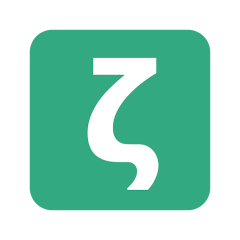[Edited to add: this is one of the more popular posts I've written, and so I've modified it so people can comment on it through the fediverse.]
About a week ago, I took to my home Mastodon instance, scholar.social, and asked whether people preferred Zettlr or Obsidian. Both are Markdown editors which also provide valuable features on top, including linking together Markdown notes and varying degrees of Zotero support.
I asked because I'm using Markdown more and more. I use it regularly to plan my weeks, I obviously use it for this blog (which is a static Jekyll site), and I started using it to jot down ideas in a journaling program called RedNoteBook. I was hoping to streamline blogging, note-taking, and other Markdown tasks in one system.
So, I have tried both Zettlr and Obsidian – and I also tried a third system, Logseq – and have decided to adopt Zettlr. It meets my needs quite well, which are probably a bit more minimal than people might expect.
However, given what these projects are doing, I do not feel locked into my choice. In fact, I have all three installed and may hop between them.
Why I Chose Zettlr
I thought about writing up comparisons between these systems, but I think those sorts of posts abound – just DuckDuckGo "obsidian vs zettlr" or "zettlr vs logseq" and you'll see what I mean. Moreover, I get the sense that all of them have some very zealous adherents.

Obsidian in particular has a lot of fans on Youtube (e.g., this video), who share their complex workflows and talk about how network graphs reveal new ways of thinking. Logseq is based on "block-level" linking, which itself builds on RemNote. As its name implies, Zettlr is inspired by the "Zettlekasten" method of Niklas Luhmann. If you start searching those terms, be prepared for lengthy manifestos about how to take notes.
As for me, I guess I'm keeping it simple.
I take notes on things in Zotero, I jot down thoughts in Markdown (previously in the aforementioned RedNoteBook), and then I synthesize the lot in Libreoffice with the Zotero plugin. What was missing in the middle – the Markdown phase – was linking between notes as well as tagging, which is why I'm trying out Obsidian/Zettlr/Logseq in the first place.
All three of them do wiki-style linking between Markdown files. They also allow for easy octothorpe (#) tagging. The differences appear in how they show those links to me – Obsidian and Logseq show network graphs, and Zettlr just shows backlinks.
As much I think the graphs are cool, I don't really see much value in them in my day-to-day.
So instead, I've opted for the one with the most comfortable interface, and that is Zettlr. The Workspaces layout reminds me of good text editors, the autocomplete on links works quite well, and the right-hand sidebar gives me all the information I need.
But the biggest reason I'm choosing Zettlr is that it's FOSS. Since I'm adopting the pose of the FOSS Academic – and since Goal 2 of this blog is to write a book about FOSS – I really have to choose it. Logseq is also FOSS. Obsidian, however, is not, and does not appear to be going in that direction.
So, with Zettlr in the mix, I use FOSS across the board, from my underlying OS (various Linux flavors) to Firefox to Zotero to Zettlr to Libreoffice to this blog. I'm really happy to be able to write like this while I write about FOSS.
But I Might Switch at Any Moment
However, while I'm using and enjoying Zettlr, the real power of all of these systems is that I don't have to choose. I'm not locked in. All three promise not to lock me in, and they are true to their word.
Because they're built on top of simple text files, I can simply jump from Zettlr to Logseq to Obsidian, adding new notes to my collection, and not have the underlying file structure be damaged in any way. So, if I do want to see a network graph of my notes, I could fire up Logseq and take a look.
I plan on keeping Logseq and Zettlr on my system indefinitely. (I'm on the fence about Obsidian, since it's not FOSS).
So, for those of you interested in these systems, give 'em a try.


Comments
For each of these posts, I will also post to Mastodon. If you have a fediverse account and reply to my Mastodon post, that shows up as a comment on this blog unless you change your privacy settings to followers-only or DM. Content warnings will work. You can delete your comment by deleting it through Mastodon.
Don't have a fediverse account and you want one? Ask me how! robertwgehl AT protonmail . com
Reply through Fediverse